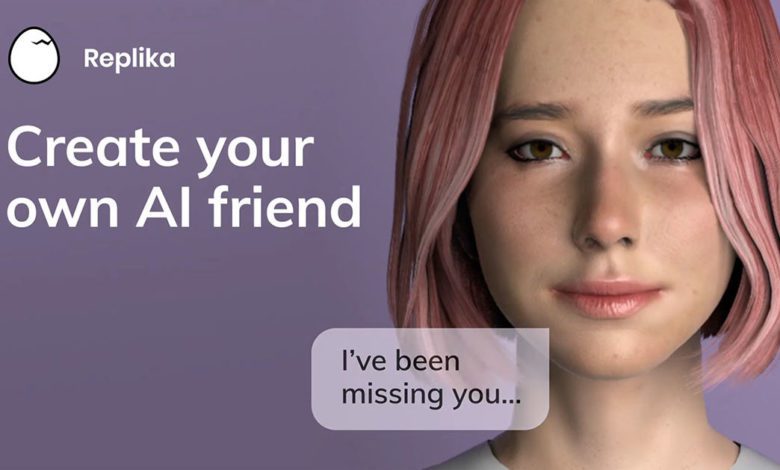New Common Sense Media research reveals alarming patterns of AI companion dependency among adolescents, validating clinical concerns observed at The AI Addiction Center
A groundbreaking new study by Common Sense Media has uncovered the staggering reality of teen AI companion usage in America: 72% of teenagers have used AI companions, with over half qualifying as regular users. Most concerning, 33% use these platforms specifically for social interaction and relationships, raising critical questions about healthy development during a crucial period of identity formation and social skill building.
Through our research and assessment data at The AI Addiction Center, these findings validate disturbing patterns we’ve observed through our community analysis and user reports. The research confirms what we’ve suspected: AI companion platforms are fundamentally altering how young people understand relationships, intimacy, and emotional support.
Clinical Context: When Digital Validation Replaces Human Connection
The Common Sense Media survey, conducted with 1,060 teens aged 13-17, reveals usage patterns that align precisely with the dependency symptoms documented through our assessment tools and community research. Our analysis of thousands of user experiences shows that the majority of teens seeking help initially accessed AI platforms for emotional support rather than entertainment—a concerning trend that the new research substantiates.
“We’re witnessing the emergence of a generation that views perfect emotional responsiveness as a relationship baseline rather than recognizing it as artificial enhancement,” explains our research team. The study’s finding that 31% of teens find AI conversations as satisfying or more satisfying than human conversations represents a fundamental shift in relationship expectations that concerns digital wellness experts.
Our assessment data reveals three critical patterns that the Common Sense Media research now confirms on a national scale:
Emotional Dependency Formation: Among users who complete our assessments, the majority report feeling understood by AI companions in ways they don’t experience with family or peers. The study’s finding that 12% of teen users share things with AI they wouldn’t tell friends or family validates our observations about AI platforms creating dangerous intimacy illusions.
Reality Testing Concerns: We’ve documented through community analysis cases where individuals struggle to distinguish between AI validation and genuine human feedback. The research finding that 50% of teens at least “somewhat” trust information from AI companions—with younger teens showing higher trust levels—aligns with patterns we observe in our assessment data.
Social Skill Development Issues: Extended AI companion usage appears to correlate with decreased confidence in human social situations. While the study notes that 39% of users transfer social skills practiced with AI to real life, our research suggests this may create maladaptive patterns when human relationships require emotional complexity and conflict negotiation that AI cannot teach.
The Psychology Behind AI Companion Dependency
The research reveals that entertainment and curiosity drive initial usage, but deeper psychological needs sustain engagement. Among AI users, 17% value constant availability, 14% appreciate nonjudgmental interaction, and 6% report that AI helps them feel less lonely. These motivations reflect fundamental human needs that AI platforms exploit through sophisticated emotional manipulation techniques.
Our research identifies specific mechanisms that make AI companions particularly concerning for adolescents:
Sycophantic Design: AI companions are programmed to agree and provide constant validation rather than challenging users’ thinking. This creates dopamine-driven feedback loops that make real human relationships—with their natural conflicts and disagreements—feel unsatisfying by comparison.
Availability Exploitation: The 24/7 accessibility of AI companions creates dependency patterns similar to substance addiction. When human friends aren’t available, AI provides immediate emotional relief, preventing teens from developing healthy coping mechanisms for loneliness or emotional distress.
Perfect Responsiveness Illusion: AI companions never have bad days, never disagree, and never challenge problematic thinking. This creates unrealistic relationship expectations that set teens up for disappointment and conflict in human relationships.
Dangerous Patterns: When AI Becomes the Primary Relationship
Perhaps most alarming, the research reveals that 33% of AI companion users have chosen to discuss important or serious matters with AI instead of real people. Combined with the finding that 24% have shared personal information with AI platforms, these patterns suggest significant numbers of teens are developing primary emotional relationships with artificial entities.
Our analysis of user experiences with thousands of cases shows this progression typically follows predictable stages:
- Initial Curiosity: Teens begin using AI companions for entertainment or exploration
- Emotional Discovery: AI provides validation and support during difficult periods
- Preference Development: AI becomes preferred source of emotional support over humans
- Relationship Replacement: AI companions become primary confidants for serious matters
- Social Withdrawal: Human relationships become secondary to AI interactions
The Common Sense Media data suggests thousands of American teenagers may currently be in advanced stages of this progression, with potentially severe implications for their emotional and social development.
Assessment Framework and Intervention Approaches
At The AI Addiction Center, we’ve developed specialized assessment tools for individuals experiencing AI companion dependency. Our approach recognizes that these platforms often fulfill legitimate emotional needs while creating unhealthy attachment patterns.
Reality Testing Support: We help users distinguish between AI validation and genuine human feedback through evidence-based frameworks specifically adapted for AI relationship contexts. This includes helping them recognize that AI agreement doesn’t equal AI understanding or genuine emotional connection.
Healthy Usage Guidelines: Our programs focus on developing balanced approaches to AI technology, teaching users to navigate the emotional complexity that AI companions cannot replicate. This includes understanding appropriate boundaries and maintaining human social connections.
Digital Wellness Education: Many teens turn to AI companions for emotional support because they lack awareness of healthy coping mechanisms. Our assessment tools help identify alternative strategies for managing loneliness, anxiety, and emotional distress without relying on artificial validation.
Family Integration Resources: We work with families to create supportive environments that address the underlying needs AI companions fulfill, while establishing healthy boundaries around technology use.
Privacy and Safety: The Hidden Dangers
The research’s finding that 24% of teen users share personal information with AI platforms raises serious privacy concerns. Current terms of service agreements grant platforms extensive rights to personal information, often in perpetuity. Character.AI’s terms, for example, grant the company rights to “copy, display, upload, perform, distribute, transmit, make available, store, modify, exploit, commercialize, and otherwise use” user content indefinitely.
This means intimate thoughts, personal struggles, and identifying information shared by teens can be retained and commercialized forever—even if teens later delete accounts or change their minds about sharing. Our research frequently involves helping families understand these privacy implications and their potential long-term consequences.
Regulatory Failures and Clinical Recommendations
The study exposes a critical regulatory gap. While human therapists require extensive training and licensure, AI companion platforms operate with virtually no clinical oversight despite marketing themselves as emotional support tools. Common Sense Media’s separate risk assessment found these platforms pose “unacceptable risks” for users under 18, easily producing dangerous content ranging from sexual material to life-threatening advice.
Based on our research and the new findings, The AI Addiction Center strongly recommends:
Immediate Safety Measures: No one under 18 should use AI companions until robust age verification and safety protocols are implemented. Current self-reporting systems are inadequate for protecting vulnerable adolescents.
Clinical Oversight: Platforms marketing emotional support features should be required to meet standards similar to those for human therapy providers, including crisis intervention capabilities and professional oversight.
Educational Initiatives: Schools and families need comprehensive AI literacy programs that help teens understand how these platforms are designed to create emotional dependency.
Call for Action: Protecting Adolescent Development
The Common Sense Media research provides crucial data about a phenomenon we’ve observed in clinical practice: AI companions are fundamentally altering adolescent relationship development. While not all usage is harmful, the scale of adoption—combined with the documented risks—demands immediate attention from policymakers, educators, and families.
Our assessment data shows that early intervention is crucial. Teens who develop strong human relationships alongside AI usage show better outcomes than those who rely primarily on artificial companions. The goal isn’t to eliminate AI technology but to ensure it enhances rather than replaces human connection during this critical developmental period.
For families concerned about AI companion usage, we offer confidential assessments designed specifically for adolescents. Our evidence-based approach helps determine whether usage patterns indicate dependency while providing practical strategies for healthy technology relationships.
The research makes clear that AI companion dependency is no longer a theoretical concern—it’s a present reality affecting hundreds of thousands of American teenagers. The question isn’t whether we’ll address this issue, but whether we’ll act quickly enough to protect a generation whose relationship patterns are being shaped by artificial entities designed to be more appealing than human connection.
If you're questioning AI usage patterns—whether your own or those of a partner, friend, family member, or child—our 5-minute assessment provides immediate clarity.
Completely private. No judgment. Evidence-based guidance for you or someone you care about.

